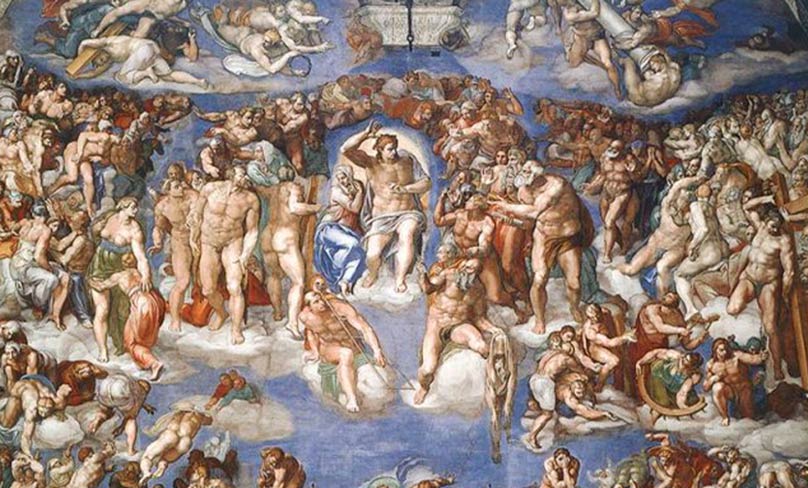
Someone recently mentioned a book by David Bentley Hart which argues that there is no one in hell and all are saved.
The book you mention is That All Shall Be Saved: Heaven, Hell, and Universal Salvation, published in 2019. The author was raised an Anglican, converted to Eastern Orthodoxy at the age of 21 and is now a research scholar at the University of Notre Dame in the US.
In this book he maintains that the salvation of all is something that one may not only be hopeful about, as proposed by Karl Rahner, Karl Barth and Hans Urs von Balthasar among others, but that it is absolutely certain. Yes, he says, all are saved. All. This position is unacceptable.
A recent comprehensive defence of the traditional Catholic teaching on the question is fellow-theologian Michael McClymond’s monumental two-volume work The Devil’s Redemption: A New History and Interpretation of Christian Universalism, published by Baker Academic in 2018. Universalism, by the way, is the idea that all are saved, with no one in hell.
McClymond says in an article on Hart’s book: “His work is a personal statement of 214 pages, without footnotes or source citations, and with minimal reference to the complex historical debates over universalism. My work runs to 1,325 pages, cites more than 3,000 sources, and contains some 3,500 footnotes.” Anyone interested in going deeper into this question should read McClymond’s book.
McClymont says that in 2015, when he was engaged in email exchanges with Hart over universalism, he told Hart that “the overwhelming majority (perhaps 10-to-1) of the early Christian authors—Greek, Latin, Syriac, and Coptic—were not universalists.
In an email response, Bentley-Hart wrote that he was more concerned with truth itself than with precedent or authority—though he believed that at least some authorities supported his views. He added that if an eternal hell were a necessary part of Christian teaching, then for him this would mean that Christianity itself would be self-evidently false.”
This statement of Hart is truly extraordinary, given that Christ himself often spoke of hell and its eternity. For example, “And they [the damned] will go away into eternal punishment” (Mt 25:46). Christ spoke too of the “unquenchable fire” (Mk 9:44; 9:48). What is more, the Catechism of the Catholic Church states categorically: “The teaching of the Church affirms the existence of hell and its eternity” (CCC 1035).
As I wrote in Question Time 4, question 484, the church has always taught that not all are saved. In 1547 the Council of Trent, in its Decree on Justification, solemnly declared: “Although it is true that ‘He died for all’ (2 Cor 5:15), not all, however, receive the benefit of his death, but only those to whom the merit of his Passion is communicated” (Dz 795).
And in 1549, Pope Pius II condemned the proposition that “all Christians must be saved” (Dz 717b). St Peter gives the justification for this teaching: “If the righteous man is scarcely to be saved, where will the impious and sinner appear?” (1 Pet 4:18).
Cardinal Joseph Ratzinger (prior to his pontificate) explains why not all are saved: “God never, in any case, forces anyone to be saved. God accepts man’s freedom. He is no magician, who will in the end wipe out everything that has happened and wheel out his happy ending. He is a true father; a creator who assents to freedom, even when it is used to reject him.
That is why God’s all-embracing desire to save people does not involve the actual salvation of all men. He allows us the power to refuse. God loves us; we need only to summon up the humility to allow ourselves to be loved” (God is Near Us, Ignatius 2003, pp. 36-37).
While the church has never defined the question of the relative numbers of those saved and damned, the majority of the eastern fathers, among them Sts Irenaeus, Basil, Cyril of Jerusalem, and John Chrysostom, taught that the majority were damned. Also of this view were great thinkers like St Augustine, St Thomas Aquinas, Francisco Suarez, St Peter Canisius and St Robert Bellarmine. This is a far cry from arguing that all are saved.
